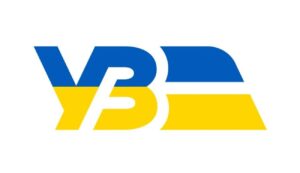
The financial plan of JSC “Ukrzaliznytsia” (UZ) for 2024 was approved with a projected loss of 12.6 billion UAH, which will be covered by the implementation of the plan to break-even, the press service of UZ reported on the official website of the company on Monday.
“The Cabinet of Ministers approved the financial plan of JSC “Ukrzaliznytsia” for 2024. Thus, planned income in the amount of 103.2 billion UAH, in particular, net income from the sale of products (goods, works, services) in the amount of 98.6 billion UAH”, – said in the message of UZ.
It is indicated that the company’s EBITDA is planned at the level of UAH 11.8 billion. EBITDA profitability index will amount to 12%.
The costs of UZ in 2024 will amount to 115.8 billion UAH. In particular, it is envisaged that the cost of sales will increase by 13%, mainly due to the need to increase employee salaries and electricity tariffs.
Revenue from freight transportation is expected to amount to UAH 80.1 billion, from passenger transportation – UAH 9.3 billion.
The planned volume of payments to the State and local budgets – 24 billion UAH, which is 5% more than in 2023.
“For the third year in a row we approve the main financial document of the company even before the new year. This time also in a record time”, – are quoted in the message the words of the head of the Board of UZ Eugene Lyashchenko.
He stressed that the approved financial plan does not provide for the attraction of funds from the state budget, the priority of which is the financing of the country’s defense capability.
“Our task remains stable provision of passenger and freight transportation in wartime conditions and financing of necessary investments for support and restoration of railway infrastructure at the expense of own and attracted from international financial institutions funds. In addition, the financial plan provides for an increase in salaries of railway workers”, – said Lyashchenko, noting that the current salaries of UZ employees do not correspond to their real contribution to the defense capability and economy of Ukraine.
The head of UZ pointed out that work on the financial plan was started back in the third quarter, when the work of ports was completely blocked.
“We have already developed our proposals for reaching break-even. In particular, given the trend of the last two months of this year, we have made a more optimistic forecast for cargo transportation. Also, we plan to unify tariffs: make them more transparent and bring them to the European model. We continue to work on cost optimization,” – said Lyashchenko.
UZ said that the financial plan for 2024 forecasts losses at the level of 12.6 billion hryvnias. They will be covered by the developed plan to reach break-even.
In addition, it is planned to utilize capital investments in the amount of UAH 38 billion. In particular, these funds will be used to restore the infrastructure damaged by the enemy and develop crossings with EU countries.

Direct budgetary funding for Ukrzaliznytsia (UZ) in 2023 will amount to UAH 5 billion, of which UAH 3.5 billion has already been allocated over 10 months, and the government provides state guarantees for another UAH 6 billion for loans that the company takes out from international financial institutions, the Ministry of Finance of Ukraine has reported.
In particular, according to the Ministry of Finance, it is UAH 3.9 billion from the European Investment Bank (EIB) and UAH 2.1 billion from the European Bank for Reconstruction and Development (EBRD).
It is specified that out of the UAH 3.5 billion already allocated this year, almost UAH 3 billion has been allocated for the purchase of new passenger railcars, including the completion of payment for 100 passenger railcars ordered in 2021 and 44 railcars in 2023.
“The prepayment for the purchase of 44 new passenger cars was made on October 28 this year, including the supply of 9 new reserved seats. These will be the first new second-class cars purchased over the past 15 years and the first Ukrainian-made second-class cars,” Deputy Finance Minister Oleksandr Kava said in a release. He recalled that Russian second-class cars were previously purchased.
According to the Ministry of Finance, work is also underway to implement international projects aimed at restoring railway infrastructure: attracting a loan from the EBRD of up to EUR 200 million under the Emergency Support to Ukrainian Railways Project, a $25 million World Bank grant under the Restoration of Critical Infrastructure and Network Connectivity (RELINC) project, a EUR 37.6 million loan from France, and grant assistance from Switzerland for CHF 14 million.
As reported, this fall UZ signed a contract with Kryukiv Carriage Works (KVSZ, Poltava region) for the manufacture of 44 passenger railcars for UAH 1.951 billion with delivery by December 31, 2025.
By the spring of 2023, KVSZ had completed fulfilling Ukrzaliznytsia’s order for 100 passenger railcars under the contract signed in 2021 for more than UAH 3 billion, but pointed to late payment.
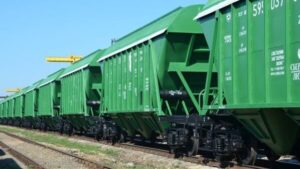
In October 2023, Ukrzaliznytsia JSC (UZ) transported 2.5 million tons of grain cargo by rail in all directions, including 1.656 million tons in export traffic, Valery Tkachev, Deputy Director of the Commercial Department, said at a meeting with the agricultural business on Thursday.
According to the report, the share of grain cargo transportation in the total volume was 16.5%. At the same time, the volume of average daily load increased to 75.7 thousand tons, which is 44% higher than in September. The record for grain transportation was set on October 25, when more than 90 thousand tons were loaded.
According to UZ, the top 3 railway stations for grain transportation include Vadul-Siret, which exported 136.6 thousand tons, Yahodyn – 121 thousand tons, Izov – 101 thousand tons.
In October 2023, 927.4 thsd tonnes of grain cargo were transported to seaports. The leaders in terms of grain transshipment were the port of Chornomorsk with 442.5 thsd tonnes, Odesa – 286 thsd tonnes and Izmail – 148.5 thsd tonnes.
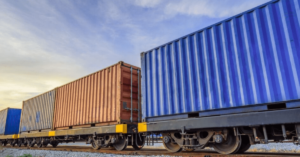
Ukrzaliznytsia (UZ) has sent more than 10 intermodal trains to the Polish ports of Gdansk and Gdynia, Valery Tkachev, deputy director of UZ’s commercial work department, said at a meeting with grain market participants on Thursday.
“The containers were mainly used to transport grain cargo and milling products. The transportation was carried out as part of the Intermodal Train service. Such trains follow a strict schedule and have convenient connections at the Ukrainian-Polish border,” he explained.
According to him, the trains departed from Odesa-Liski, Dnipro-Liski and Vinnytsia stations. The operator of the transportation through Ukraine was the Liski Transport Service Center branch of Ukrzaliznytsia, and UZ Cargo Poland in Poland.
UZ also said that it is considering launching the train from Kyiv as well as from other stations if the shipper orders the service regularly.
agricultural goods, intermodal trains, Polish ports, UKRZALIZNYTSIA
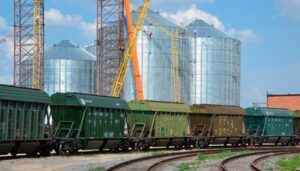
Starting November 1, Ukrzaliznytsia (UZ) will change the average speed of its own grain hoppers to increase their competitiveness in the freight market, Valery Tkachev, deputy director of UZ’s commercial operations department, said at a meeting with grain market participants on Thursday.
Thus, the following speeds will be applied to grain carriers moving towards port stations: 111 km/day for carload shipments (the current rate is 50 km/day), and 253 km/day for route shipments (against the current 138 km/day).
The movement of grain carriers towards the western border crossings will also accelerate. It will increase from 50 to 61 km/day for group shipments and from 50 to 187 km/day for route shipments.
The average speeds of grain carriers in domestic traffic and imports have been revised. For freight shipments, the figure will be 57 km/day compared to the current 50 km/day, and for route shipments – 128 km/day (currently 118 km/day).
These changes are expected to increase UZ’s competitive advantage in the grain transportation market.
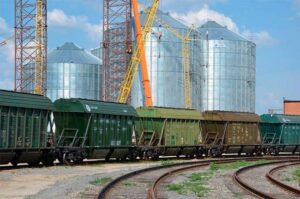
JSC “Ukrzaliznytsia” announced Dutch auctions through “Prozorro.Sales” 300 grain carriers of the branch “Center of transport logistics” for the transportation of agricultural products to ports.
According to the message on the electronic trading platform, 40 lots of 5 wagons and 10 lots of 10 wagons in group shipments in the direction of ports (except for Izmail and Reni) are offered at the auction. The starting rate is 600 UAH/day and may decrease to 354 UAH/day.
Loading is possible in the period of October 19-31, 2023.
The auction is scheduled for October 13. Applications for participation in the auction are also accepted until October 13 inclusive.